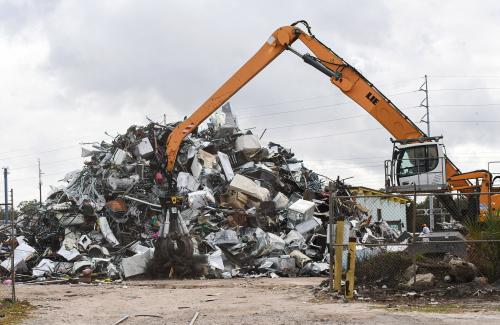SUMMARY
Copenhagen got us little further than Bali: a weak political declaration, with 2ºC as the only number. In some respects, the result moves us backwards: the politics are worse, while numbers previously agreed by the Kyoto club are omitted here. The conditions to turn a political declaration into a comprehensive deal appear absent.
Rather than hitting the brakes, deal-makers need to steer into the skid by building on unprecedented engagement by heads of state; ratcheting up pressure for U.S. legislation; revitalising strategy among those pushing for a deal; and fundamentally altering the politics of developing country engagement on climate.
To do this: they should build and diversify the support base for action on climate change, making tangible to elites and publics what a long-term solution looks like; create the ‘bandwidth’ needed to agree a comprehensive deal, while developing the institutions needed to build confidence that the deal can actually be implemented; and increase levels of trust in the climate policy debate, by showing a new willingness to talk frankly and honestly about how to manage climate risk. With these ends in mind, the paper offers 12 recommendations as follows.
Focus debate on solutions by:
- Rebuilding trust in the science
- Initiating a more mature discussion of climate risk
- Creating a common language to help deal-making
Make the low carbon economy tangible by:
- Pursuing quick wins alongside the post-Copenhagen process
- Building low carbon into the fiscal tightening
- Tightening the focus on disruptive technologies
Connect the dots between climate and other global issues by:
- Getting ready for the next resource price spike
- Recognizing and welcoming the inevitability of carbon tariffs
- Focusing development strategies on building resilience
Correct the institutional deficit on climate change by:
- Setting up a new International Climate Performance Committee
- Creating incentives for developing countries to take on binding targets
- Using the forthcoming UN High Level Panel on Climate and Development as a key avenue for progress


